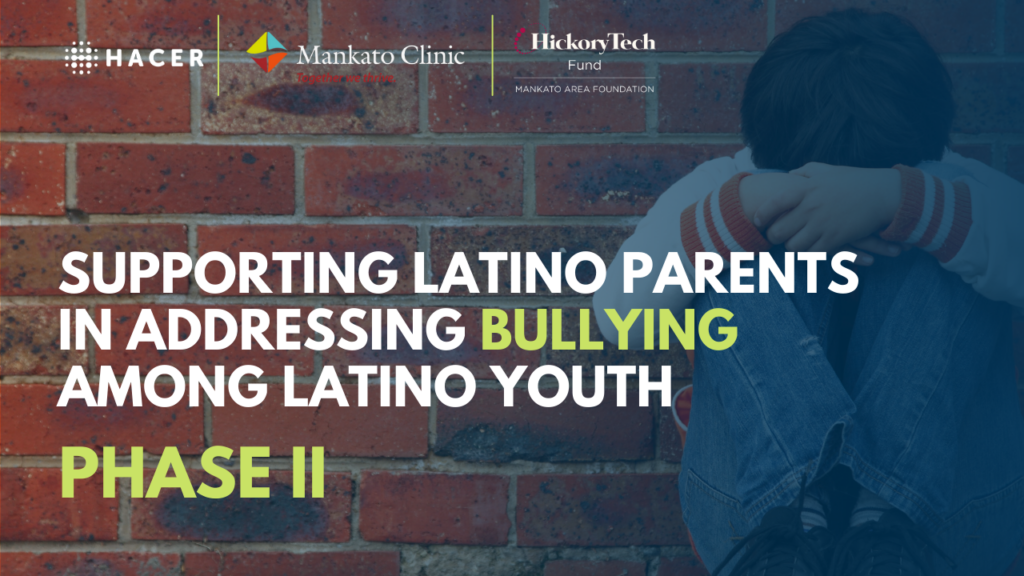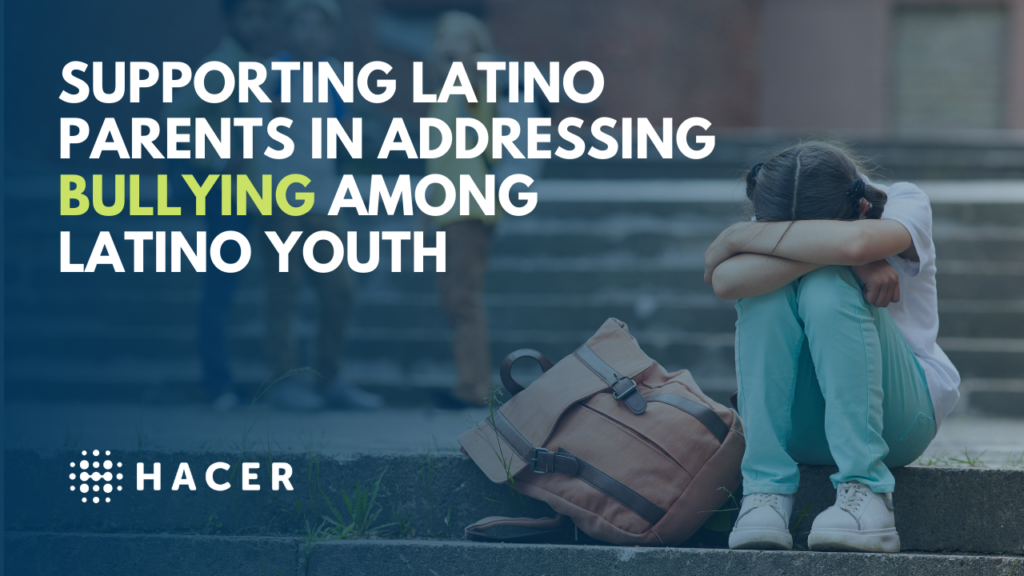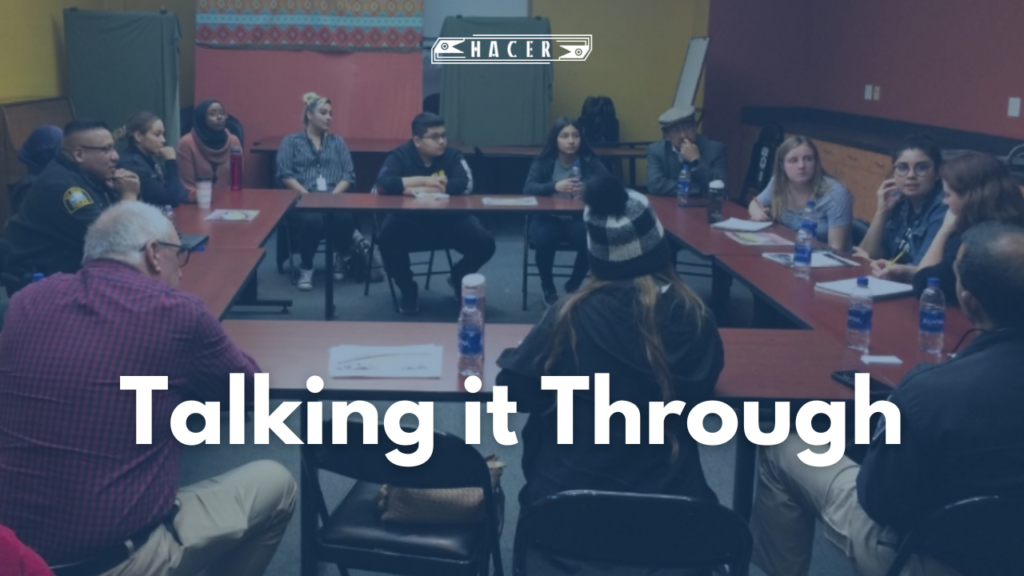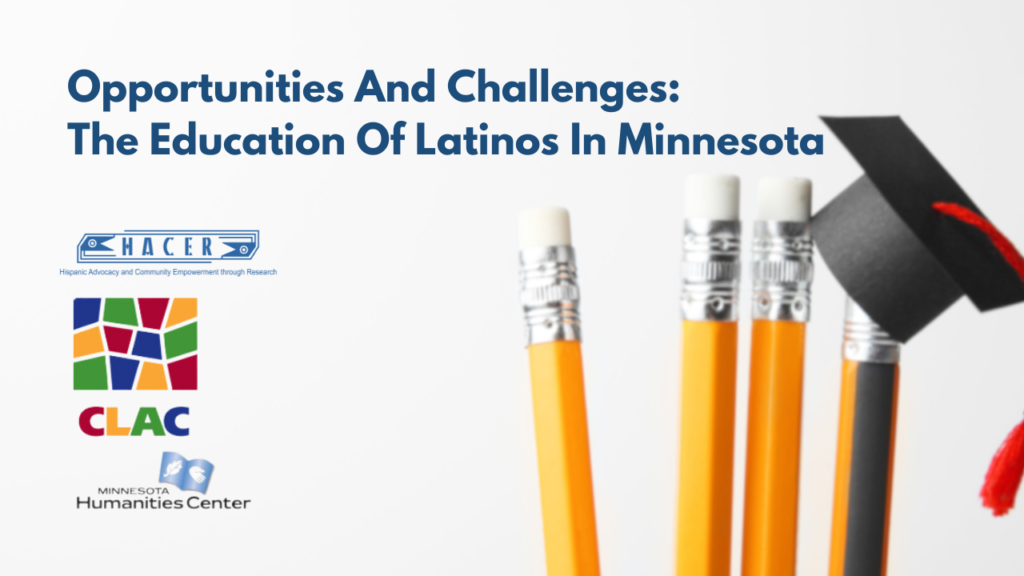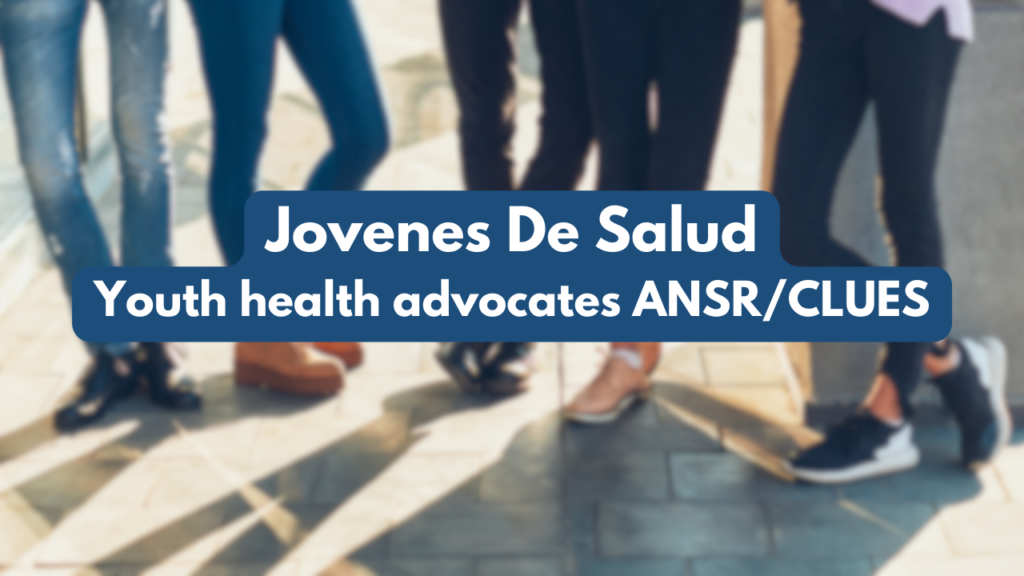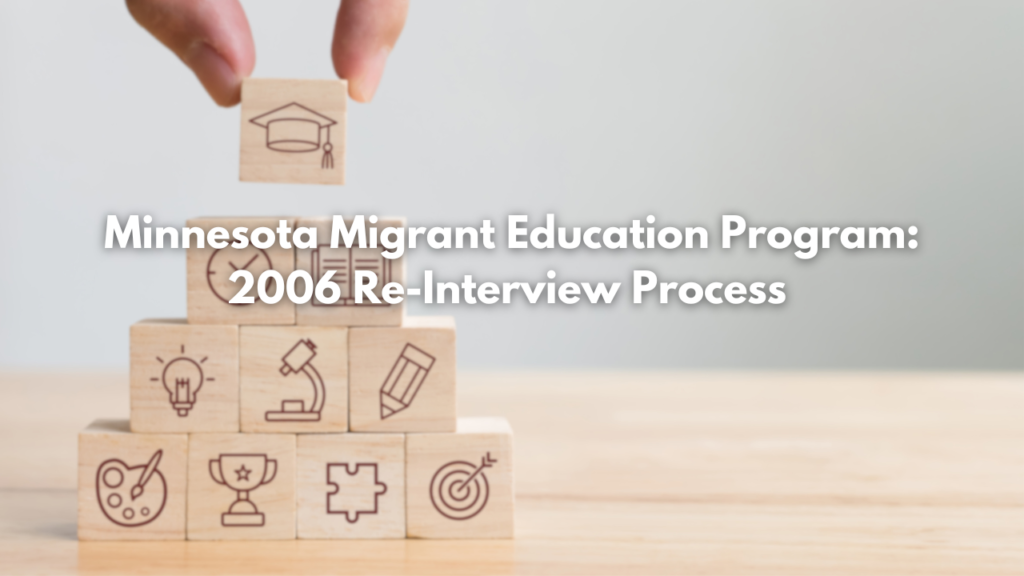In the fall of 2019, Hispanic Advocacy and Community Empowerment through Research (HACER) put on
a program called Talking it Through, which was aimed at creating a dialogue between police officers and
Latino/a youth. HACER was motivated to create this program to address the hostility between the police and
people of color and the profiling and discrimination from police officers that affect nonwhite people. Since we
are a Latino organization, we chose to focus this project on Latino and Latina youth. The project involved two workshops: One informative session in which the youth participants could learn from police officers, lawyers, psychologists, and other community workers about their rights when interacting with the police and the services and resources that are available to them; as well as one interactive session in which the youth and police officers could talk about their perceptions and experiences in a safe environment. The outreach for this project was
difficult, as getting youth, especially those who have had problems with the police, to attend a workshop and
speak with police officers, is not easy. However, the youth, police officers, and other who attended all came
away with new and valuable knowledge. HACER learned a lot about how to conduct a program such as this and is now looking to replicate and improve on the program.

